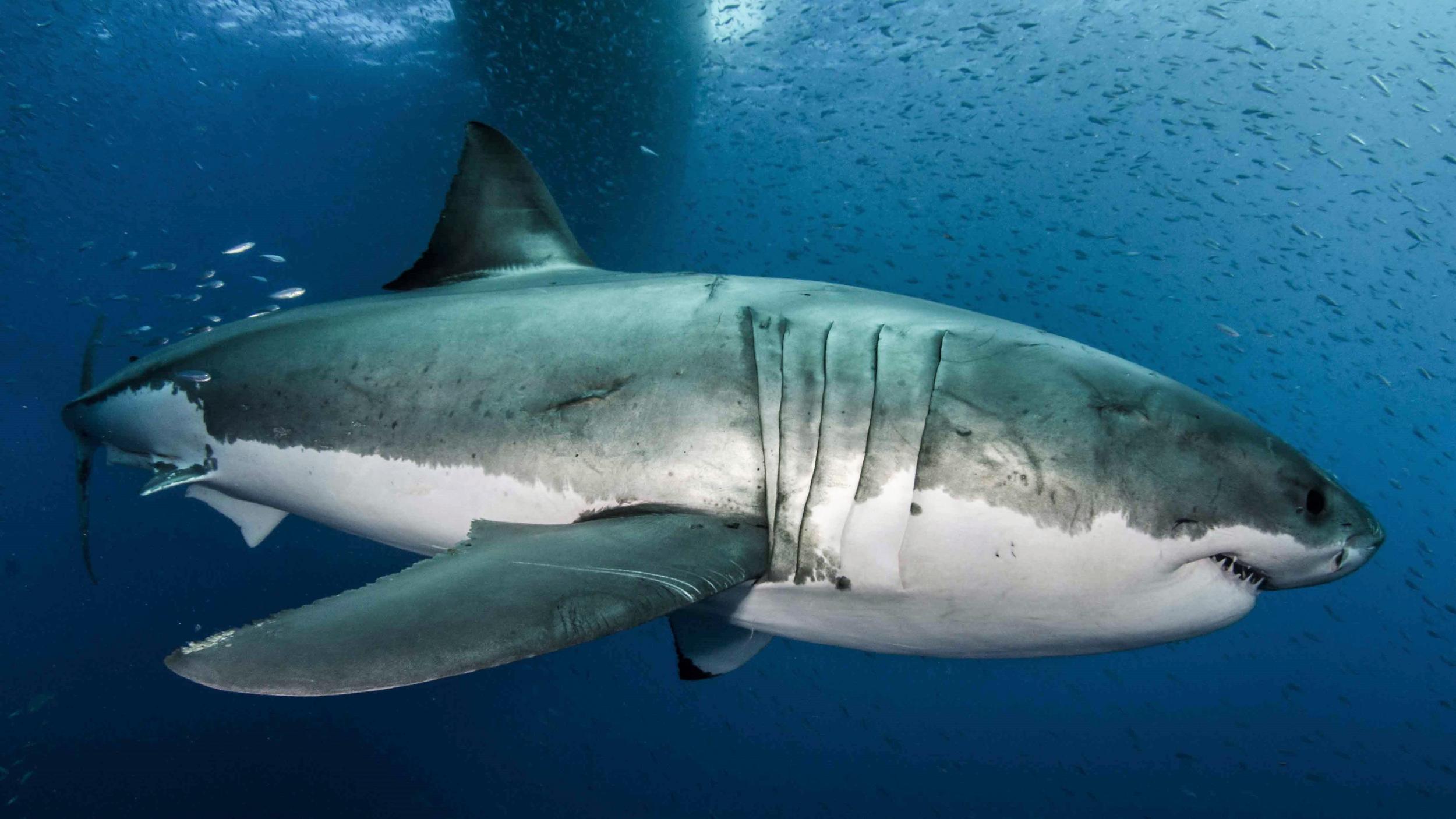Great white shark DNA holds clues to prevent cancers and heal wounds
'There's still tons to be learned from these evolutionary marvels,' says author Dr Mahmood Shivji
Your support helps us to tell the story
From reproductive rights to climate change to Big Tech, The Independent is on the ground when the story is developing. Whether it's investigating the financials of Elon Musk's pro-Trump PAC or producing our latest documentary, 'The A Word', which shines a light on the American women fighting for reproductive rights, we know how important it is to parse out the facts from the messaging.
At such a critical moment in US history, we need reporters on the ground. Your donation allows us to keep sending journalists to speak to both sides of the story.
The Independent is trusted by Americans across the entire political spectrum. And unlike many other quality news outlets, we choose not to lock Americans out of our reporting and analysis with paywalls. We believe quality journalism should be available to everyone, paid for by those who can afford it.
Your support makes all the difference.Great white sharks may prove unlikely saviours of human lives thanks to their huge and extraordinary genome, scientists have revealed in a discovery which could prove crucial in the finding a cure for cancer.
An international team have published the first complete great white shark genome, a transcript of its genetic code including genes with specific function and DNA with a less well understood role.
This instruction manual for how to build a one of nature’s most effective predators, which have existed for at least 16 million years, show how evolution has “fine tuned” genes to repair harmful mutations.
These accrue in the genetic code with age as cells divide and are exposed to environmental carcinogens and lead to cancers and other diseases in humans.
“Genome instability is a very important issue in many serious human diseases,” said Dr Mahmood Shivji, one of the study’s authors and director of the Save Our Seas Foundation Shark Research Centre at Nova Southeastern University in Florida, US.
“Now we find that nature has developed clever strategies to maintain the stability of genomes in these large-bodied, long-lived sharks."
The great white’s genome has similar enhancements in genes that underpin blood clotting a fundamental part of wound healing which may help explain the creatures’ superior ability to recover from attacks would be mortal in humans.
“There’s still tons to be learned from these evolutionary marvels,” Dr Shivji added. “Including information that will potentially be useful to fight cancer and age-related diseases, and improve wound healing treatments in humans, as we uncover how these animals do it.”
Multiple studies in humans have shown being larger is associated with an increased risk of cancer, in large part because taller people have more cells in which a potential cancer-causing mutation can occur.
But this principle doesn’t hold true in larger animals like great whites – which measure up to 20ft long and weigh up to three tonnes – suggesting they have a genetic adaptations which helps mitigate their extra cancer risk.

Initial findings from the great white’s genome, which is 50 per cent bigger than the human genetic code, were published in the journal Proceedings of the National Academy of Science (PNAS) on Monday give clues to how it has achieved this.
Regulatory genes closely linked to repairing DNA, sounding the alarm in response to damage and ensuring quality control of the genetic code when cells are dividing have been enhanced with molecular tweaks to make them more effective.
“Not only were there a surprisingly high number of genome stability genes that contained these adaptive changes, but there was also an enrichment of several of these genes, highlighting the importance of this genetic fine-tuning in the white shark,” said Dr Shivji.
Similar enhancements have found in the genome of the world’s biggest fish, the whale shark, emphasising their importance in sharks and potentially explaining how they have thrived in the oceans since well before veretebrates walked on land.
Co-author Dr Michael Stanhope, from Cornel University, said that evolution has also enriched genes at the heart of “fundamental pathways in wound healing”.
“These adaptations involving wound healing genes may underlie the vaunted ability of sharks to heal efficiently from even large wounds,” he said.

Join our commenting forum
Join thought-provoking conversations, follow other Independent readers and see their replies
Comments